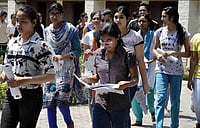Finance Minister Nirmala Sitharaman proposed relaxation in the FDI norms for sectors such as media, aviation, insurance, and single brand retail with a view to attract more overseas investment.
In her budget speech, Sitharaman invited suggestions for further opening up of FDI; entering into aircraft financing, adopting suitable policy interventions for providing an enabling ecosystem for maintenance, repair, and overhaul of aircraft; and re-initiating disinvestment of Air India.
“As the world’s third largest domestic aviation market, the time is ripe for India to enter into aircraft financing and leasing activities from Indian shores,” said Sitharaman. She also said that the government would implement the essential elements of the regulatory roadmap for making India a hub for such activities.
Among all proposals made in the budget, aircraft financing is the most challenging and ambitious, feel experts.
International aviation analyst Shukor Yusof says, “I feel India is a bit late into the game. It takes years to be a leasing hub, not to mention having the right ingredients, namely a generous tax policy (double taxation treaties) and solid legal environment.”
“Ireland took almost 40 years to be the world's top aircraft leasing hub. Singapore, too, has invested time & money attracting lessors. But all is not lost,” he said.
Yusof, the founder of Singapore-based firm Endau Analytics, is of the view that after China, Indian carriers are among the largest aircraft buyers and lessees. "There's hope yet but be realistic with expectations."
Ajay Jasra, former Corporate Communications Head, IndiGo says, “As long as high interest on bank's loan exists, aircraft financing will remain a piped dream in India.”
“You can’t compare between 9-10% interests in India vis-a-vis 1-2% of European or US market,” Jasra says.
He is also critical about the government’s initiative to further open up the sector for FDI as he feels that foreign investors will not come in this atmosphere of high taxation on fuel, engine imports and state-centre taxes.
At present, a foreign company can have up to 49% stake in an Indian aviation company.
"Running a profitable business in the present tax environment is not possible. Which international entity would like to burn fingers?” he says.
However, Anand E. Stanley, President & Managing Director, Airbus India and South Asia, and Chair of the Civil Aviation Committee of FICCI, feels that the government has addressed the aspirations of a modernising nation through an expanded focus on civil aviation.
“FDI relaxation in aviation will boost the government’s disinvestment programme. We look forward to supporting from the government for tax reform to incentivize airlines and to boost the Maintenance, Repair and Overhaul industry so that the cost of servicing aircraft in India is not only competitive but distinctly attractive,” Stanley says in a press release.
Maintenance, Repair and Overhaul (MRO) industry has about 32 companies which import most spare parts of aircraft from other countries for the repair work of about 650 aircraft in the country. The industry enjoyed complete tax exemption on import of spare parts from 2013 to 2016 till the time GST scheme was announced.
Sitharaman said that the government would adopt suitable policy interventions to create a congenial atmosphere for the development of MRO in the country.
Pulak Sen, the Founder, MRO Association of India, heaped praise on the Ministry of Finance and the Office of the Prime Minister for recognising the potential and opportunity presented by MRO industry.
“India is the world's fastest-growing aviation industry and creating an MRO ecosystem within the country will be both economically and strategically beneficial for this great country of ours,” Sen said.
Seconding Sen’s view, Palash Roy Chowdhury, Chairman, AMCHAM Civil Aviation Committee and Managing Director – India, Pratt & Whitney, said,
“We look forward to the much-needed government support that will enable the local MROs to compete with foreign ones which enjoy a more favourable import tax regime. This will not only boost the local MRO industry but also contribute to the government’s tax revenues.”




















.jpg?w=200&auto=format%2Ccompress&fit=max)

_550_550.jpg?w=200&auto=format%2Ccompress&fit=max)



